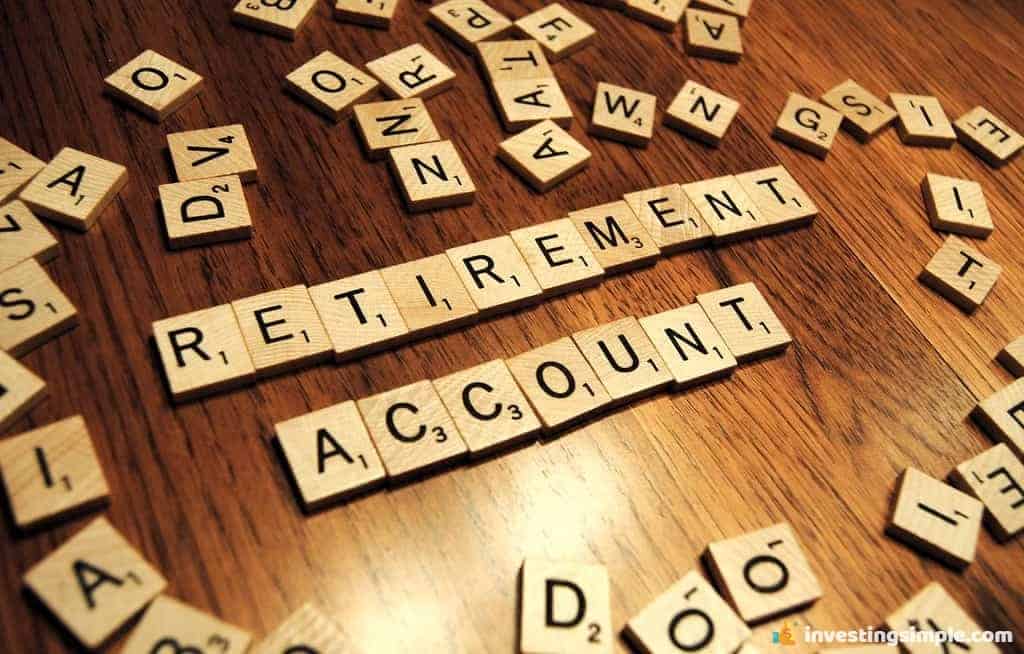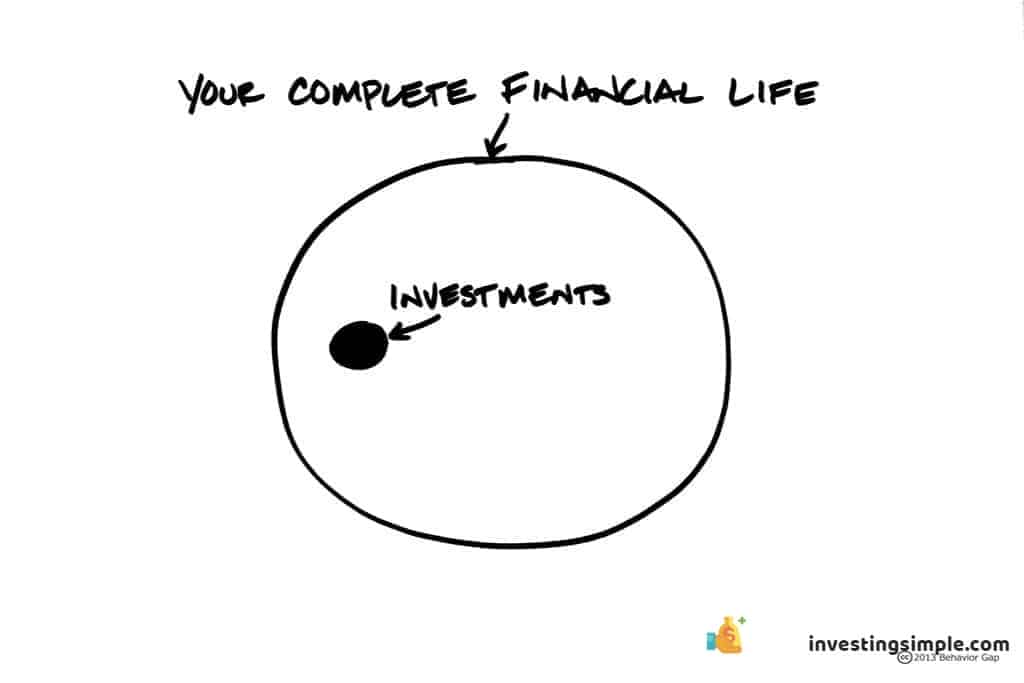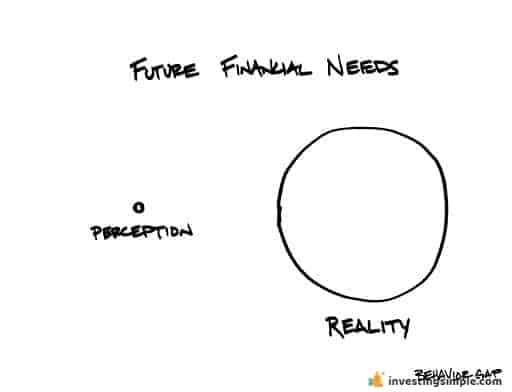Best Place For My 17 Yr Old Son To Invest His Money
Investing is one of the most exciting topics, especially if you are a teenager and the world ahead of you is wide open.
Learning how to invest as a teenager can give you a tremendous head start for your financial future.
Early investing can have huge benefits and teens who learn responsible money habits can have a huge advantage over their peers.
If you are a teenager and want to learn more about finances, you can start with the basics and gradually learn the art of financial planning, saving, and investing.
Teenagers who are serious about their future should learn about smart money habits and investing is a crucial skill everyone should learn if they want to live out their dreams.
Take it from the expert, Warren Buffett. He once said, "the best time to plant a tree was 20 years ago, the second-best time is now."
Here are a few ways to start investing as a teenager.
Can You Invest If You Are Under Age 18?
Most people don't think they can begin investing until they are an adult or over age 18. This may be true, but there are certain types of accounts offered to minors that can be established by a parent or guardian. Some of these accounts can help you save for long-term goals such as education and retirement.
The most common type of account is a custodial account.
Best Brokerages For Custodial Accounts
Many brokerages offer members access to a custodial account, but some of them come with an extra cost. Here are our top three choices for brokerages with a custodial account that all feature no fees, no account minimums, and no commissions:
- Firstrade: Best for those looking for a better dashboard and desktop version. They also offer mutual funds with 0 commissions.
- Charles Schwab: Best for those looking for advanced stock research.
- Fidelity: Best for those looking for low-cost ETFs.
A custodial account is great for a number of reasons as it provides a way to transfer wealth, can be used for more than just college expenses, and provides tax benefits. Let's take a deeper look at these accounts and how to set them up.
Best Free Stock Promotions
Setting Up a Custodial Account UGMA/UTMA
Minor accounts, created in part by the Uniform Transfers To Minors Act and the Uniform Gift To Minors Act (UTMA/UGMA), are excellent options if you are investing for your teenager. You can establish these minor accounts and begin investing within them almost immediately. This money can be used for any purpose including education expenses as well as any other needs the child may have.
The purpose of these accounts is to provide monetary benefits to teenagers and y ou can establish a custodial UGMA/UTMA account with a brokerage such as Firstrade.
The profit from these investment accounts will be taxed according to the child's tax rate or potentially the parent's tax rates if the child makes enough money and is subject to kiddie tax limitations.
Custodial UGMA/UTMA accounts are one of the excellent options for teenagers who want to begin investing. The parents have the final decision over the account until the child reaches 18 or 21 (depending on the State).
At the age of majority, ownership of the account will be transferred fully to the child and the parent will no longer have any control over the account. The child will be free to cash out the account for whatever they please, so it's important to talk with your child about the intended purpose of the account beforehand.

Retirement Plans for Teenagers and Minors
Retirement plans are a great way to save for your future. No matter what, if you are investing for a teenager or an adult, it's never too early to start planning for retirement. The earlier you begin planning, the better off you will be. This is thanks to something called compound interest!
There are many different types of retirement accounts, but the most popular are the Traditional IRA or the Roth IRA.
The Traditional IRA is a tax-deferred retirement account. Meaning you contribute to the account with pre-tax dollars. When you take distributions in retirement from a Traditional IRA, you will pay ordinary income taxes.
Roth IRAs are slightly different, as contributions are after-tax. This means the account grows tax-free and when you take distributions in retirement they will be completely tax-free.
For both Traditional and Roth IRAs you cannot take a qualified distribution until age 59 ½. If you take an early distribution, you will be subject to a 10% penalty and income taxes. However, there are certain exceptions to the early withdrawal penalty. You can read more about these exceptions here.
Typically, younger people tend to gravitate toward Roth IRAs because they assume that they are in a lower tax bracket now than they will be in the future. For example, if you're currently paying 12% in taxes and assume that in the future you'll be in a 25% tax bracket, you'd be better off to pay the 12% now instead of 25% later.

Minor Traditional IRAs and Minor Roth IRAs
Note that with both Traditional IRAs and Roth IRAs, your child will need to have earned income. Without earned income, you are not allowed to contribute. So if you're thinking of contributing to a Roth IRA for a younger child you might need to find creative ways for them to earn income.
If you are planning to set up a Traditional or a Roth IRA for your children, you can do this until they reach the age of 18. This will allow them to begin saving for retirement early on and will provide significant benefits.
For most situations, the Roth IRA will be best since children are in a low tax bracket now (typically 0%) and will be at a higher tax bracket later in life when they take distributions from the account. This way the dollars within the minor Roth IRA may never get taxed.
You can set up Minor Roth IRAs at a variety of brokers. There are many options available so we recommend doing as much research as possible before jumping in. Consider reading this article before choosing. In the meantime, these brokers below offer great options for minors.
- Vanguard
- Fidelity
- Charles Schwab
- TD Ameritrade
Coverdell Education Savings Accounts and 529 Plans
You can also invest in qualified education savings accounts for your teen. Planning for your teen's education is a good way to stay ahead of hefty college expenses.
In just the past 20 years alone, in-state tuition and fees have increased more than 200% at public universities. Anything you can do to get ahead of those increases will provide a huge benefit.
If you're looking for a saving instrument that can offer tax benefits and pay for college expenses, then you may want to consider a college savings plan. There are two primary options to choose from; 529 Plans and Education Savings Accounts (ESA).

529 Education Savings Plan
This is a savings plan offered by most states that allows individuals to save for college or k-12 education expenses.
You may also use 529 plans to pay student loans and internship programs. The annual contribution limit for 529 plans is $15,000 and most States offer a tax deduction for your contribution. There is also the ability to contribute five years-worth of contributions at once and fund up to $75,000 into a 529 plan in one year.
Distributions within these accounts are tax-free by the IRS if used for qualified education expenses. Parents, guardians, grandparents, or even family friends can establish a 529 account and choose their specified beneficiary.
Note that if a child decides not to attend college or there are excess funds in a 529 plan, the funds can easily be transferred to another family member or be withdrawn for non-education usage. If you choose to withdraw funds for non-education expenses, there will be a 10% penalty on any earnings in the account.
Like the IRAs above, multiple brokers offer these types of plans. Betterment is one that we feel offers competitive benefits and is an easy-to-use platform for a 529 plan.
Coverdell Education Savings Account (ESA)
An ESA is a savings plan established by the federal government which allows individuals to contribute up to $2,000 per year per beneficiary.
Unlike a 529 plan, there is no tax deduction for the contribution. This should give you pause when considering this over a 529 plan. Similar to a 529 plan, distributions will be tax-free if used for qualified education expenses. However, the ESA must be used before the beneficiary reaches age 30 or you will be subject to tax and penalties.
Contributions to ESA accounts may also be subject to income phase-out limitations. This means if you make over a certain amount of money, you will not be eligible to contribute.
Similar to 529 plans, these funds can either be used for K-12 private education or college expenses.
Currently, there are not many compelling reasons to choose an ESA over a 529 plan.

Types of Investments for Teenagers
Saving In a Bank Account
In case you are still unsure about all the above options, you can still look at investing for teens in a savings account. Although the returns will not be high as the other investment plan, your funds will be secure with little to no risk.
Those who are looking for higher-yielding savings accounts may want to check out Betterment Cash Reserve. This platform offers higher interest rates than most traditional bank accounts.
Check current savings rates here!
When you are saving as a teen, stashing money away in a savings account is the first step. Ideally, if you can find a bank account that earns reasonable interest so you can earn at least a small return on your idle cash.
Most of the time, parents use a savings account as the first step toward meaningful savings. This strategy will also help teenagers begin to form the habit of saving and reduce unnecessary spending.
Stock Market Investing
Investing in the stock market is also one of the familiar investment options for young adults. To start investing in the stock market as a minor, a custodial account must be opened by the child's parent or guardian.
Custodial accounts can be opened easily in most cases. Minor accounts are offered at most brokerage firms including TD Ameritrade, Charles Schwab, and Firstrade.
If you are under age 18, you are not eligible to make trades.
Parents or guardians should sit down with their children and review the potential trades together. This can prevent teens from submitting incorrect trading orders. You may want to begin investing in the stocks your teenager is familiar with or products they use.
This way it gives them more of a connection to their investment and an understanding of how the investment process works.
If you are over age 18, then you are free to establish a regular brokerage account and place trades on your own. You can take a look at the best investment apps here. Many of these apps will allow you to invest without paying any fees or commissions which is a must-have for beginner investors.

Real Estate Investing
Most individuals gravitate toward real estate as their first investment. This is logical because most of the time the first investment someone makes is the purchase of their home. Buying a house is a way to invest in real estate and use your investment as a utility at the same time.
We recommend making this investing truly beneficial by purchasing a duplex or a home with a basement apartment that you can rent out and have someone else pay your mortgage.
One of the barriers to entry for real estate investing is the high amount of upfront capital required to get started. For this reason, there are other methods of investing in real estate that are more accessible such as real estate investment trusts (REITs) or crowdfunded real estate investing.
REITs and real estate crowdfunding break up large real estate investments into shares. These shares are then sold to investors who are hoping to get a return over time. This allows many investors to purchase a portfolio of real estate assets. This method makes real estate investing far more accessible to smaller investors.
One of the fastest-growing real estate crowdfunding platforms is Fundrise. This platform creates portfolios of real estate across the US that you can buy a fraction of and receive dividends and capital gains from the portfolio.
Investing In Bonds
Investing in bonds is also an option for teenagers. A bond is debt issued by a company and sold to lenders. An investor can purchase a bond from the company and earn interest on their investment. Eventually, the principal loan amount and interest will be repaid to the investor.
Bonds can have risks as well. Some of these include credit risk from the borrower meaning how likely the borrower is to repay the loan. Certain companies can come under difficult times and it may be difficult for them to repay all of their debts.
Bonds can be issued by companies, governments, or municipalities. The interest rate offered by the borrower typically correlates to the amount of risk the bond holds. For example, a bond issued by a high-risk company should result in a higher interest rate on the bond.
Some types of bonds are backed by different levels of government. U.S. Government bonds are considered some of the safest investments because they are backed up by the full faith and credit of the U.S. government, though they still hold risk.
An advantage to municipal bonds is that the interest they pay out is typically tax-free. While this probably isn't a huge benefit for your average teenager, if you do find yourself in a higher tax bracket, these bonds can potentially help to lower your taxable income.
Mutual Funds
Parents can also consider investing for their children in mutual funds. Mutual funds will provide your teen with the ability to invest in a group of stocks or bonds.
Mutual funds can be structured in multiple different ways. These funds can be actively traded and professionally managed by investment advisors. Mutual funds can also offer a more passive strategy such as investing in a market index.
Mutual fund investing pools funds together from several investors and invests those funds in a group of stocks or bonds. These funds then distribute capital gains or dividends to the mutual fund holders once they are earned. Mutual funds all have different fee structures and investment strategies so make sure to do your due diligence before investing.
ETF (Exchange-traded Funds)
ETFs or exchange-traded funds can offer a small minimum investment and low fees. You always have the option to sell these funds any time you need them. Exchange-traded funds (ETFs) trade on exchanges similar to stocks and provide more liquidity or the ability to buy and sell.
Many ETFs are also index funds. These are funds that derive their value from underlying market portfolios. For example, there are index funds that track the S&P 500 U.S. Large Cap stocks. Index funds can offer a simple way to create diversification within your portfolio.
This is particularly important for beginner investors who don't have tens of thousands of dollars on hand to create a well-diversified portfolio from scratch.
Robo-Advisor Investing For Teenagers
Have you ever heard of a robo-advisor?
Well, this is the new type of investment platform that is growing in popularity. A robo-advisor will help make investment decisions for you. Typically they will ask you questions about your risk tolerance, time horizon, and overall objective. Robo-advisors make recommendations based on the answers to these questions and your current financial situation.
Robo-advisor investing is typically more hands-off and may be useful for beginner investors. They have low investment requirements and flat service fees. Betterment is a good option for a Robo-advisor if you are over age 18. They also offer 529 college savings plans. Unfortunately, they do not support custodial accounts at this time.
Long Term Investing As A Teenager
Most successful investment strategies tend to be long term in nature. Investing involves risk, and you don't want to be forced to sell when your investment is not doing well. For this reason, it is best to understand your investment time horizon before you begin risking your money.
An overall investment strategy including your expected time horizon, estimated risk, and expected return is an important first step before you invest.
Long-term investing also gives you the opportunity to earn significant returns over time. Most of the time, the longer you are invested, the more potential you have to make money. For example, a $10,000 investment in the S&P 500 in 2000 would be worth $31,200 in 2021, adjusted for inflation.
However, all investments involve risks and returns are never guaranteed, even if held long term. For example, a $10,000 investment in WTI Crude oil from 2000 to 2021 would be worth $6,296, a -37% return.
As a beginner investor, you should consider starting with a small investment. This way you can learn more about how investing works and get an understanding of the discipline. While you may make mistakes, this is a valuable learning experience.
Over time, even a small investment can result in a fair amount of growth especially if held long term. However, beginners should understand investing involves taking on risk. All investments have risk and some even come with the possibility of losing it all. While this is scary, these risks can be mitigated by diversifying your portfolio. 
How to Invest As a Teenager or Minor: Final Thoughts
Investing as a teenager has never been easier. However, i f you are under age 18 then you may need the assistance of a parent or guardian. Whether you are trying to save for retirement, education, or your future, there are many options available for teenagers.
These include brokerage accounts, bank accounts, education-focused accounts, and even retirement accounts. Don't let your age keep you from getting a headstart on your financial future.
If you'd like to learn more about investing basics check out our Beginners Guide to Investing in the Stock Market.
Keep Reading:
- How To Retire Early With Dividend Investing
- How To Value A Stock Using Fundamental Analysis
- Webull Review: Best Free Investing App?

Best Place For My 17 Yr Old Son To Invest His Money
Source: https://www.investingsimple.com/how-to-invest-as-a-teenager/
Posted by: behrensinsittlyse.blogspot.com

0 Response to "Best Place For My 17 Yr Old Son To Invest His Money"
Post a Comment